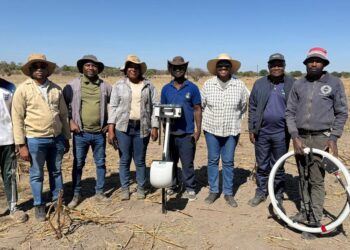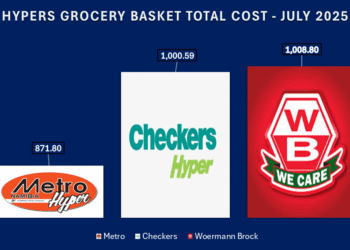
Around the world companies are experimenting with the four-day week. Earlier this year around 30 companies from across South Africa started the six-month experiment where employees will work just four days a week yet deliver the same tasks, services, and products for their organisations.
This was the first African nation to join the pilot and now the project is looking to start a second wave of pilot companies in Southern Africa. The Four Day Week organisation is looking for participants in Namibia.Â
The Four-Day week project was initiated in New Zealand where a private insurance firm innovated around its working time so that employees work 80% of their time yet produce 100% at work and importantly be paid 100% of the salary. Since the humble beginnings, experiments have rolled out across the world from United Kingdom to the United States to Spain to Japan and now to Africa.
The results elsewhere have been overwhelmingly positive in terms of the well-being of employees, the performance of organisations, and the reputation for organisations as employers who seek to balance performance and respect for the lives of workers. The organisations are supported by the experiences of employers already working four days with productivity hacks, tips for day-to-day working, ideas for better meetings and advice around technology to support the change.
Something that unites organisations participating in the four-week pilot is a sense of need to rebalance the individual lives of managers and employees in their organisations. Around 100 years ago, the five-day week of around 40 hours work was institutionalized across many countries. This was part of a decline from longer working weeks and was followed by further declines in average working times, but not days, in many countries. Yet something has stuck in relation to the five-day week norm that does not have a divine or biological reason.
In spite of predictions that economies would tend towards leisure societies, dating back many decades, there is little evidence of this transition and we hang on to the norm of 40 hour across five days. The proliferation of devices that permit workers to remain connected and work from more diverse geographical regions seems to create a situation where people work more rather than less.
The pilots around the world demonstrate some organisations are willing to break with this five-day paradigm. Indeed, their employees, clients and suppliers received the news positively as a sign of innovation, foresight, and a willingness to challenge to establish norms. This does not mean these organisations will not be open five, six week or even seven days a week just that individual employees will work four days.
The pilots are subject to independent research and in the case of Southern African that is being led by Stellenbosch Business School. The participating organisations are high-performing companies and in a highly-competitive sectors. As in all competitive sectors the competition is based on the service and product offered to clients but also the recruitment and retention of talent. Offering a challenging high-performance workplace combined with working patterns that respect people’s private lives is an exciting and competitive employer proposition in today’s world. It is a paradigm shift to think of time as the scarce resource as one manager in the pilot told one of our researchers.
The researchers from Stellenbosch Business School have been interviewing and surveying managers and employees along the way. So far, the results point to challenges of implementing a new way of working but also an overwhelming positive response as companies innovate, raise productivity, boost creativity, and enhance wellbeing of their employees. Many employers intend to continue the four day project beyond the end of the pilot study in the Spring.
In the case of Namibia we might expect similar positive outcomes for employers and employees but also some unique challenges posed by the structure of the economy, inequality and the low wages faced by many. In the first instance the project will be run by Four Day Week South Africa (https://4dayweek.co.za/ ) so interested companies should get in touch. Whatever the challenges, it is an exciting opportunity for Namibian firms to participate in this Stellenbosch-led research and explore the potential of innovating the way they work.
*Prof Mark Smith is Director of the Stellenbosch Business School, Cape Town (SA). where he leads a triple-accredited school specializing in post-graduate education. He is former Faculty Dean at Grenoble Ecole de Management (FR) where he had also led the Doctoral School. Prior to working in France he worked at Manchester Business School (UK). His research interests focus on careers and labour market policy & outcomes for women and men including working conditions, working-time, and work-life integration.
Â
Â
Â
Â
Â
Â











